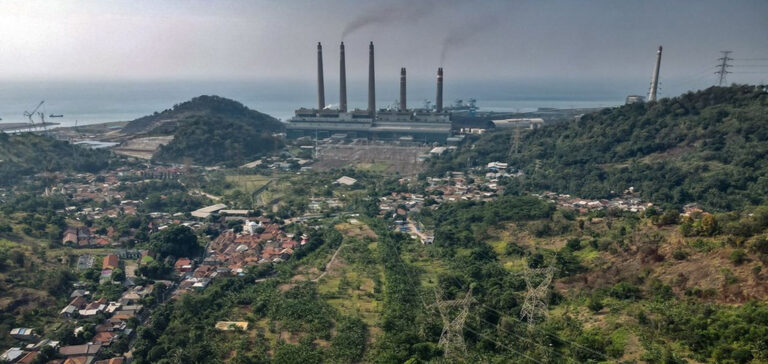Indonesia has published its roadmap for achieving carbon neutrality in the electricity sector by 2050. The country, which is heavily dependent on coal for its power generation, aims to secure $20 billion in financing to achieve this major transition.
Transition to renewable energies
The main objective of this roadmap is to reduce Indonesia’s carbon emissions to a maximum of 250 million tonnes by 2030. This represents a significant reduction on the previous target of 290 million tonnes. At the same time, the country aims to increase the share of renewable energies in its electricity production to 44%, compared with an initial target of 34%.
The Just Energy Transition Partnership (JETP)
This initiative is part of the Just Energy Transition Partnership (JETP) for Indonesia, which was unveiled last year. The JETP provides for public and private funding of up to $20 billion in exchange for Indonesia’s commitment to cap emissions from its power sector by 2030 and achieve carbon neutrality by 2050.
However, there has been some criticism of the funding arrangements proposed under the JETP agreement. Jakarta fears that it will be offered mainly market-rate loans, which could increase its debt.
Public consultation process
It should be noted that the roadmap presented by Indonesia is a living document, which will be updated every year. The document is currently open to public consultation, and a final version will be published before the COP28 climate summit in the United Arab Emirates, scheduled for November 30 to December 12.
The United States, Japan, Canada and six European countries have signed the JETP agreement with Indonesia to reduce the country’s dependence on fossil fuels. However, the figures recently published by Jakarta do not take into account the new “captive” coal-fired power plants, which supply the factories directly from the electricity grid.
The JETP secretariat stressed that Indonesia and the signatory countries share a strong commitment to identifying and implementing viable solutions for the future. Despite air pollution problems, Indonesia has pledged not to build any new coal-fired power plants from 2023, although construction of already planned coal-fired plants continues despite protests from environmental activists.
All in all, Indonesia is showing considerable ambition when it comes to reducing carbon emissions in its power sector and making the transition to renewable energies. However, financial challenges and implementation details remain issues to be carefully monitored. This evolving roadmap should continue to attract attention as the country works to achieve carbon neutrality by 2050.






















